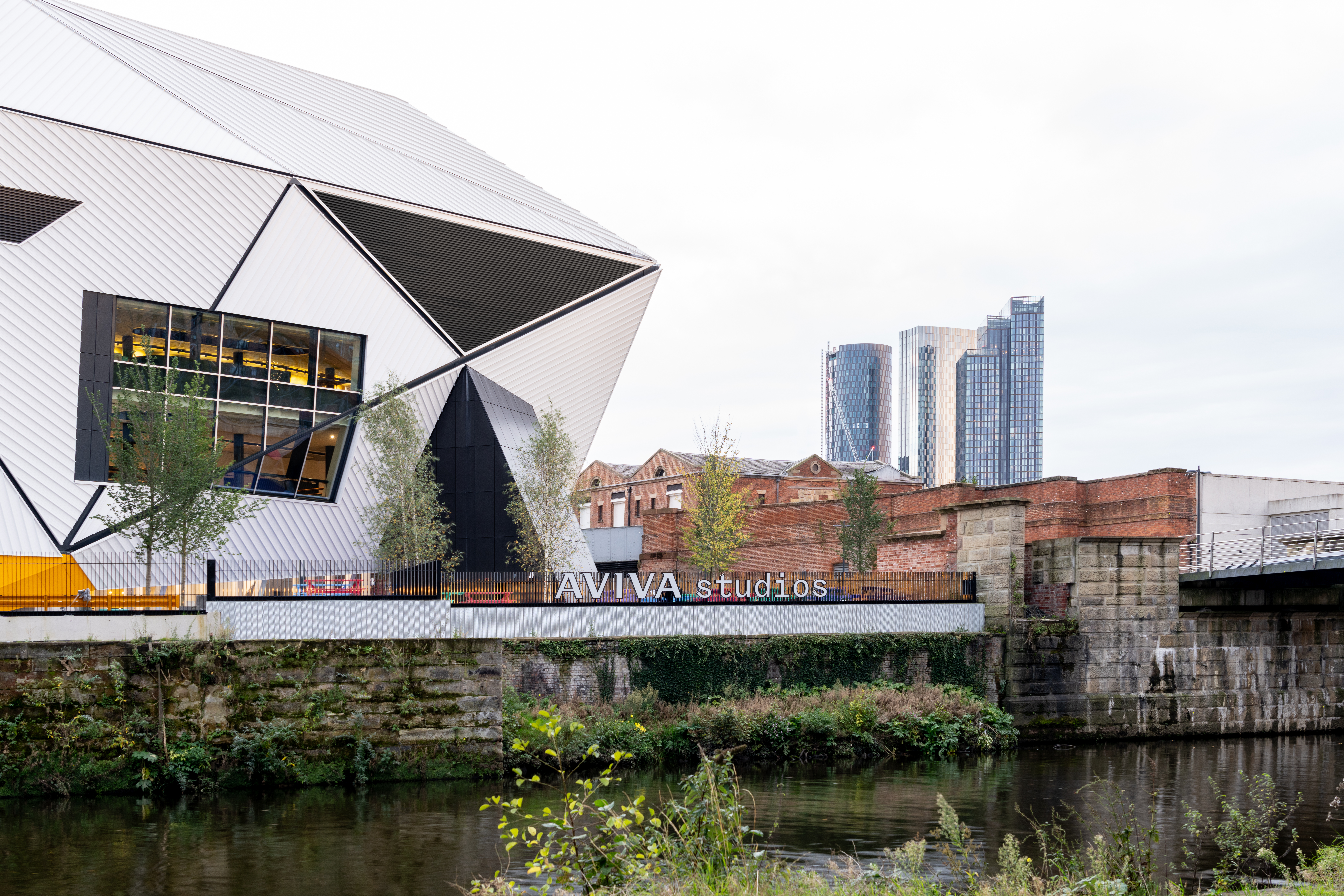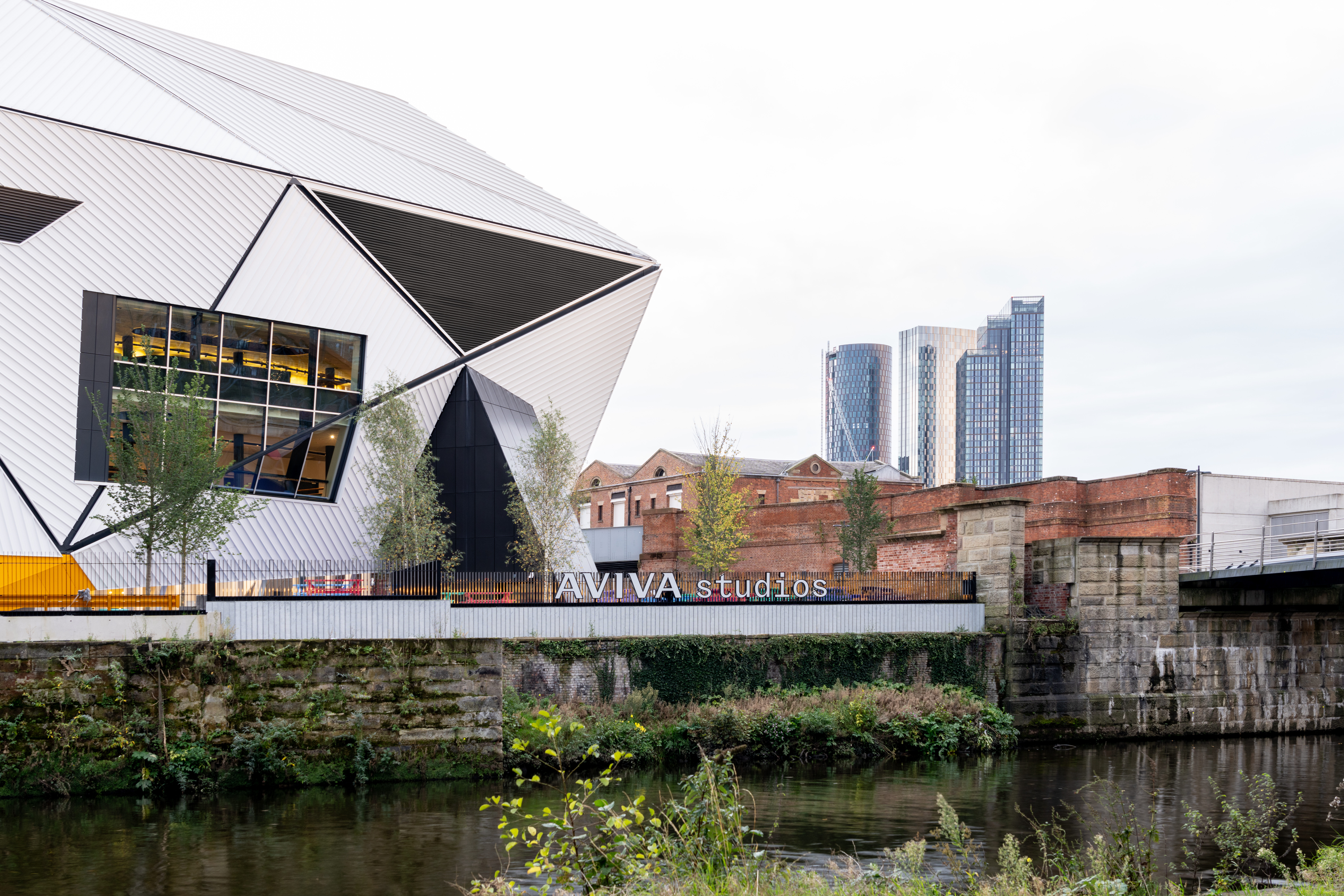Aviva is using cultural sponsorship to reignite its brand and back the UK

Aviva has a long-standing presence in sponsorship, spanning rugby, football, athletics, and cycling. However, when those UK partnerships ended in 2018, a noticeable shift occurred.
“We began to see a gradual decline in brand health and a lack of differentiation in a crowded financial services category,” says Tom Whiteside, Head of Group Sponsorship at Aviva.
By 2023, with a new brand and sponsorship team in place — led by Stephen Doherty and Phoebe Barter — the business made a decisive move to reinvest in the brand and re-evaluate how sponsorship could play a meaningful role.
What followed was a conscious shift. Rather than returning to the usual sports properties often favoured by financial services brands, Aviva charted a different course.
“You tend to see within financial services and sponsorship that people default to the same sorts of properties and passion points,” Tom says. “This was a deliberate decision not to follow the crowd back into big sports.”
Instead, Aviva adopted a venue-led strategy — one that builds on the long-running success of the Aviva Stadium in Ireland while offering something new and culturally distinct. The result? A landmark partnership with Factory International and the newly opened Aviva Studios in Manchester.
A cultural anchor with national purpose
“We saw a once-in-a-generation opportunity to be part of what’s probably the most progressive and ambitious arts and culture project happening anywhere in Europe,” says Tom. “These buildings don’t get built very often — and they certainly don’t get built outside of London.”
The strategy behind Aviva Studios aligns closely with the company’s core mission: to back the UK.
“This sponsorship helps us deliver sustained positive impacts for our customers, our clients, our colleagues — but importantly, for communities, our brand, our business, and the UK more broadly,” Tom explains. “It’s tightly aligned with our commitment to support long-term economic growth, job creation, and community regeneration.”
Diversifying through venues
With 17 million UK & Ireland customers, Aviva wanted a portfolio that reflected the full breadth of its audience. That’s why, alongside the Aviva Stadium, the company invested in something culturally different — without compromising on reach or relevance.
“These venues are places where customers, clients and colleagues can experience our brand in new, unexpected, and impactful ways,” Tom says. “They allow us to build emotional connections and deliver brand-led experiences rooted in what people genuinely care about.”
This diversified approach doesn’t just set Aviva apart in a cluttered market — it also reflects the brand’s intangible nature. “We don’t have retail stores or physical products,” Tom adds. “Venues like these give us a tangible way to express who we are.”
Aviva aren’t the only brand investing in venue sponsorship. Last week, The Sponsor spoke with Oli Pfeiffer from AO, sponsors of another Manchester-based cultural venue — the AO Arena. You can read that interview here.
Building awareness, access, and impact
In its first year as the naming partner of Aviva Studios, the brand focused on two key objectives: launching the venue into the public consciousness and laying the groundwork for long-term social value.
To achieve this, it partnered with Amazon Music on a series of live-streamed shows featuring Bastille, Franz Ferdinand, Ella Henderson, and Mumford & Sons, which were broadcast across Prime Video and Twitch.
“These events helped us take Aviva Studios into living rooms across the UK,” says Tom. “We saw it as a fast, effective way to build national awareness and engagement.”
Social impact is equally core. As principal partner of the Factory Academy, Aviva is helping deliver free training and skills programmes for young people — especially those from underrepresented backgrounds — to access Manchester’s growing creative industries.
“There’s a huge focus on off-stage roles — sound design, production, filming,” Tom says. “And we’re now embedding financial literacy into the programme too, to help prepare graduates entering the freelance economy.”
Through the Aviva £10 Ticket initiative, the company is also supporting Factory International’s accessible ticketing policy. In its first year, 21,000 low-cost tickets were accessed, with plans to scale further in 2025.
More than sponsorship — A business driver
While the social value is clear, Tom is equally focused on demonstrating commercial returns.
“These aren’t just feel-good investments,” he says. “We’re a financial services business, so we need to speak the language of the boardroom.”
This involves measuring impact across multiple levels, from brand tracking and econometric analysis to first-party data acquisition, colleague engagement, and B2B activation.
“We use every lever available to deliver business value,” Tom says. “We look at how sponsorships help us attract talent, engage our workforce, and even build thought leadership case studies based on our business expertise.”
Social outcomes are rigorously tracked, too from course graduation rates to longer-term employment and behavioural change.
“We work closely with the rights holders to assess both the immediate outputs and the longer-term outcomes,” Tom says. “We’re lucky that, because of our work with a large number of causes, we’re fairly well-versed in this type of reporting.”
A new chapter
Fifteen years after the launch of the Aviva Stadium, the company is now embarking on a new chapter for its brand, one rooted in physical spaces, real-world impact, and a tangible commitment to UK communities.
In an industry dominated by short-term noise and same-old sponsorships, Aviva’s approach feels quietly radical and all the more impactful for it.
Register for a free account here to get more insights and tips from leading sponsorship experts.
Author: Sean Connell, Editor.









